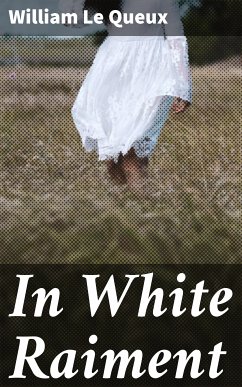In 'In White Raiment', William Le Queux masterfully weaves a narrative that explores the covert dynamics of espionage and international intrigue set against the backdrop of an early 20th-century landscape fraught with tension and uncertainty. With a blend of vivid descriptions and fast-paced dialogue, Le Queux delves into themes of loyalty, betrayal, and the morally ambiguous nature of patriotism, capturing the zeitgeist of a world on the brink of change. The novel not only entertains but also engages with the anxieties of its time, making it a significant work within the genre of thriller fiction, characterized by its intricate plot and well-drawn characters that reflect societal concerns of the era. Le Queux, a prolific British novelist and journalist, was deeply influenced by his experiences in the realms of politics and journalism. His extensive travels throughout Europe, particularly in regions marked by political upheaval, provided him with a keen understanding of the espionage that pervaded international relations during his lifetime. This background is palpable in 'In White Raiment', as the author employs his knowledge of contemporary geopolitical affairs to craft a narrative that resonates with both realism and speculative intrigue. Readers seeking an engrossing blend of suspense and insight into the morally complex world of espionage will find 'In White Raiment' to be an essential addition to their literary collection. Le Queux's gripping storytelling and rich contextual detail not only grab the reader's attention but also provoke thoughtful reflection on the nature of duty and sacrifice amidst tumultuous times. This novel is a captivating choice for anyone eager to explore the undercurrents of historical intrigue during a pivotal era.
Dieser Download kann aus rechtlichen Gründen nur mit Rechnungsadresse in A, B, BG, CY, CZ, D, DK, EW, E, FIN, F, GR, H, IRL, I, LT, L, LR, M, NL, PL, P, R, S, SLO, SK ausgeliefert werden.









